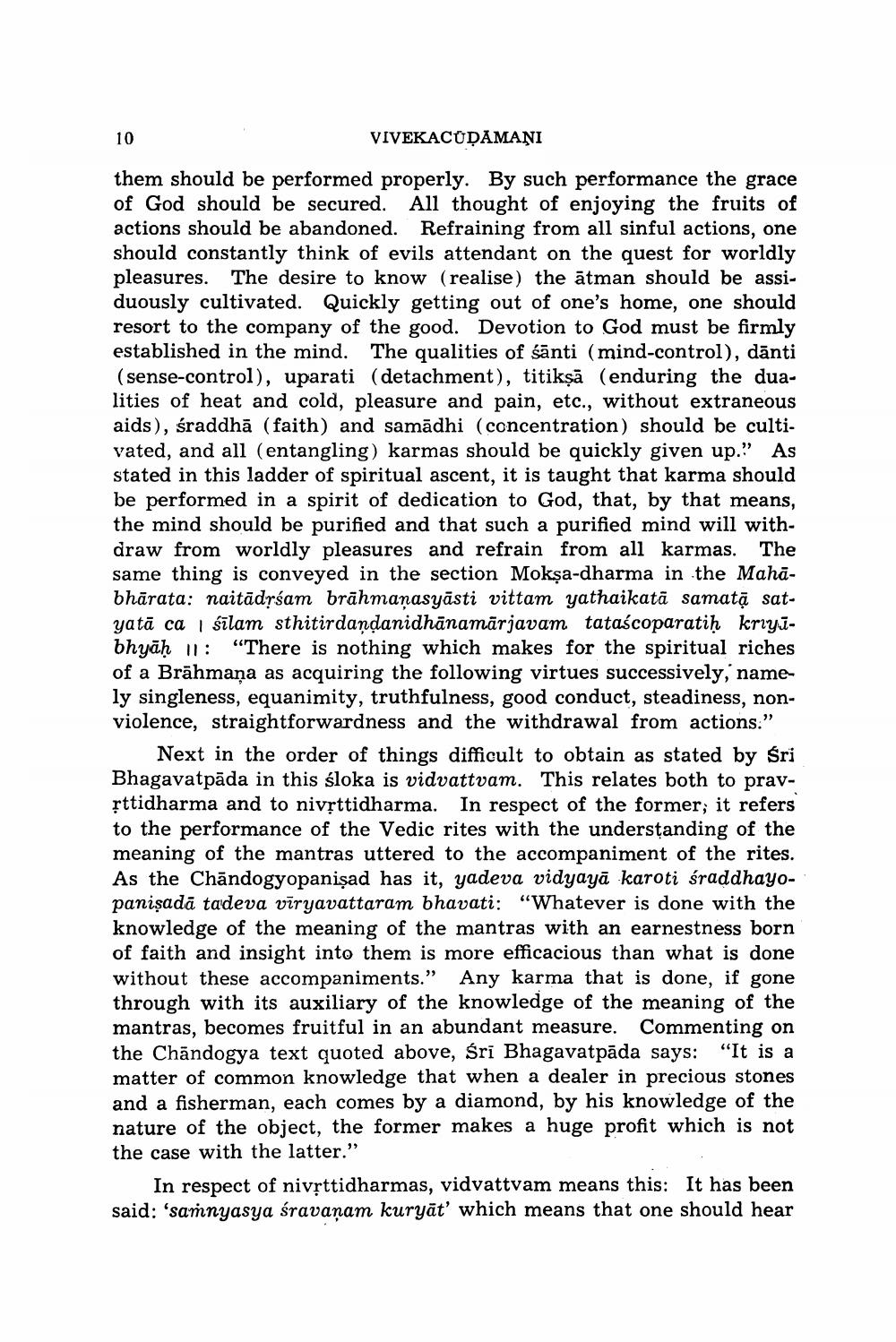________________
10
VIVEKACUDAMANI
them should be performed properly. By such performance the grace of God should be secured. All thought of enjoying the fruits of actions should be abandoned. Refraining from all sinful actions, one should constantly think of evils attendant on the quest for worldly pleasures. The desire to know (realise) the ātman should be assiduously cultivated. Quickly getting out of one's home, one should resort to the company of the good. Devotion to God must be firmly established in the mind. The qualities of śānti (mind-control), dānti (sense-control), uparati (detachment), titiksā (enduring the dualities of heat and cold, pleasure and pain, etc., without extraneous aids), sraddhā (faith) and samādhi (concentration) should be cultivated, and all (entangling) karmas should be quickly given up.” As stated in this ladder of spiritual ascent, it is taught that karma should be performed in a spirit of dedication to God, that, by that means, the mind should be purified and that such a purified mind will withdraw from worldly pleasures and refrain from all karmas. The same thing is conveyed in the section Mokşa-dharma in the Mahābhārata: naitādrsam brāhmaṇasyāsti vittam yathaikatā samata satyatā ca | śīlam sthitirdaņdanidhānamarjavam tataścoparatiḥ kriyibhyān ll: "There is nothing which makes for the spiritual riches of a Brāhmaṇa as acquiring the following virtues successively, namely singleness, equanimity, truthfulness, good conduct, steadiness, nonviolence, straightforwardness and the withdrawal from actions."
Next in the order of things difficult to obtain as stated by Sri Bhagavatpāda in this sloka is vidvattvam. This relates both to pravrttidharma and to nivrttidharma. In respect of the former; it refers to the performance of the Vedic rites with the understanding of the meaning of the mantras uttered to the accompaniment of the rites. As the Chāndogyopanişad has it, yadeva vidyayā karoti sraddhayopanişadā tadeva vīryavattaram bhavati: "Whatever is done with the knowledge of the meaning of the mantras with an earnestness born of faith and insight into them is more efficacious than what is done without these accompaniments." Any karma that is done, if gone through with its auxiliary of the knowledge of the meaning of the mantras, becomes fruitful in an abundant measure. Commenting on the Chāndogya text quoted above, śri Bhagavatpāda says: “It is a matter of common knowledge that when a dealer in precious stones and a fisherman, each comes by a diamond, by his knowledge of the nature of the object, the former makes a huge profit which is not the case with the latter."
In respect of nivșttidharmas, vidvattvam means this: It has been said: 'samnyasya śravaņam kuryāt' which means that one should hear




